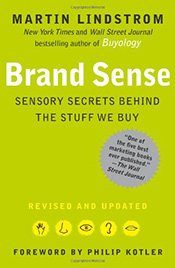 I expected cigarette smoke, beer and the sickly, sweet tang of girlie cocktails. And, desperation steeped in sweat.
I expected cigarette smoke, beer and the sickly, sweet tang of girlie cocktails. And, desperation steeped in sweat.
Instead, Las Vegas smelled like rosemary and lavender with a hint of sweet orange. JW Marriott calls it “subtle sophistication,” part of a growing trend in brand marketing that engages multiple senses to influence consumer behavior.
The last leg in a 10-day trip out west, Las Vegas was our least anticipated destination. We’d hiked through canyons in Utah’s national parks, the Virgin River and climbed thousands of feet along switchbacks, breathing crisp, clean, exhilarating air.
So, when we entered the colossal resort/spa/casino, I held my nose.
My husband detected “subtle sophistication” on the elevator ride to our floor. “Do you smell that?” Sure enough. Rosemary and something sweetish. The not so subtle images of herbs and oranges that peppered the hotel’s marketing materials confirmed the ingredients of its version of branded sophistication.
Called sensory brand marketing, hotel behemoth’s like JW Marriott are among the early pioneers to capitalize on scent, sound, texture, and even taste to enhance the overall consumer experience. Hospitals are also employing scents to improve the patient and visitor satisfaction. The MRI unit at Florida Hospital Celebration Health, for example, is perfumed with an ocean scent and the waiting room on the Savannah Floor smells like grass.
Scent is a particularly powerful influencer because humans are hard-wired to respond emotionally to what they smell. The brain’s olfactory bulb, which detects odors, fast-tracks signals to the limbic system, which links emotion to memories. It’s why the scent of popcorn takes us directly to a theater, coconut reminds us of a sun drenched, sandy beach and cigar smoke makes us remember Uncle Bob.
According to the Scent Marketing Institute, 75% of all the emotions we experience daily are prompted by scent. Positive, congruent scents make shoppers linger a bit longer and help condition them for purchase.
Shoppers at Nike were 80% more likely to purchase in a room perfumed with a floral scent than consumers in an unscented room. What’s more, they were willing to pay more for the same shoes. In another study, slot machine receipts increased by 53% in the scented area of a casino (Brand Sense, Martin Lindstrom, Free Press ,2005).
With brands competing among some 5,000 ads served daily to consumers, it’s no wonder a third of Fortune 500 companies are considering other channels to our wallets. What does your favorite brand smell like?























